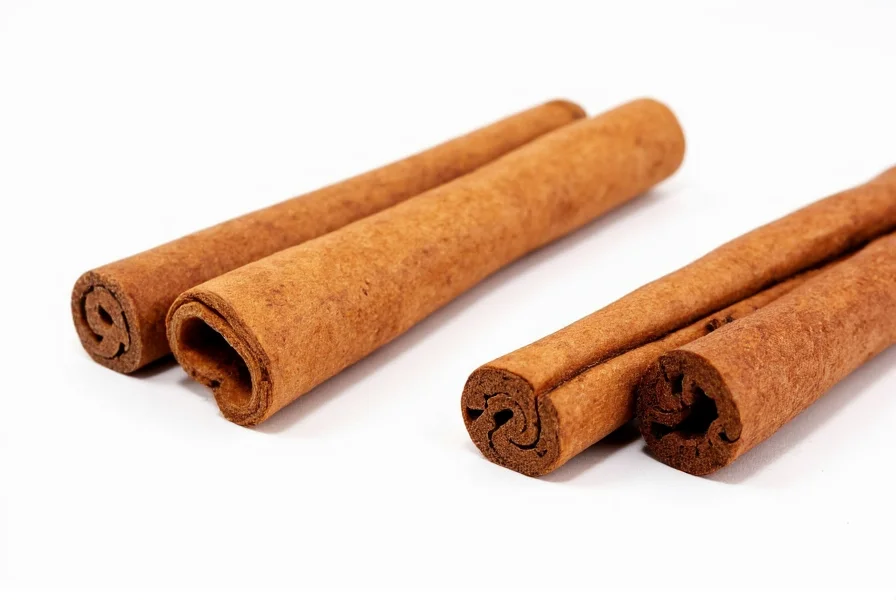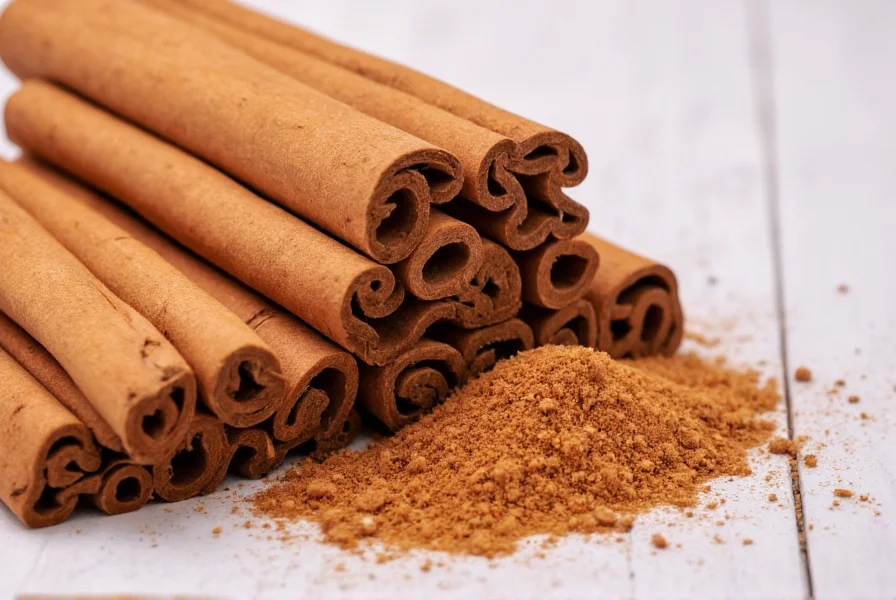For individuals exploring natural approaches to support blood sugar management, cinnamon has gained attention in both scientific literature and popular health discussions. This comprehensive review examines what current research actually says about cinnamon's potential role in blood glucose regulation, separating evidence-based findings from common misconceptions.
Understanding Cinnamon Varieties and Their Differences
Not all cinnamon is created equal when considering blood sugar effects. Two primary types dominate the market:
| Type of Cinnamon | Scientific Name | Coumarin Content | Availability |
|---|---|---|---|
| Ceylon Cinnamon | Cinnamomum verum | Very low (0.004-0.1%) | Less common, typically specialty stores |
| Cassia Cinnamon | Cinnamomum cassia | High (2-5%) | Most common in supermarkets |
The distinction matters significantly for blood sugar research because most studies have used Cassia cinnamon, which contains higher levels of coumarin—a compound that can cause liver damage in excessive amounts. Ceylon cinnamon, sometimes called "true cinnamon," contains minimal coumarin but has been less extensively studied for blood glucose effects.

What Scientific Research Reveals About Cinnamon and Blood Glucose
A 2023 meta-analysis published in the Journal of Medicinal Food reviewed 16 randomized controlled trials involving 1,294 participants with type 2 diabetes or prediabetes. The analysis found:
- Average reduction in fasting blood glucose of 7.89 mg/dL (modest but statistically significant)
- Greater effects observed with longer supplementation periods (12+ weeks)
- Doses between 1-3 grams daily showed the most consistent results
- Significant variation in individual responses across studies
It's important to note that these effects are considerably smaller than those achieved with standard diabetes medications. For context, metformin typically reduces fasting blood glucose by 30-40 mg/dL. The research suggests cinnamon might serve as a complementary approach rather than a primary treatment for blood sugar management.
Proposed Mechanisms: How Cinnamon Might Affect Blood Sugar
Researchers have identified several potential mechanisms through which cinnamon may influence glucose metabolism:
- Insulin sensitivity enhancement: Certain compounds in cinnamon, particularly cinnamaldehyde and polyphenols, may improve insulin receptor function
- Slowed gastric emptying: Cinnamon may delay carbohydrate breakdown and absorption in the digestive tract
- Antioxidant effects: Reduced oxidative stress may improve pancreatic beta cell function
- Glycogen synthesis: Some animal studies suggest cinnamon components may stimulate glycogen production in liver cells
However, most of these mechanisms have been demonstrated primarily in cell cultures or animal models. Human evidence for these specific pathways remains limited, representing one reason why cinnamon's blood sugar benefits for humans aren't as pronounced as some popular health sources suggest.
Practical Considerations for Blood Sugar Management
For those considering cinnamon as part of their blood sugar control strategy, evidence-based recommendations include:
- Dosage: Most studies showing benefits used 1-3 grams (approximately 1/2 to 1 1/2 teaspoons) of ground cinnamon daily
- Duration: Effects typically require consistent use for 8-12 weeks before measurable changes
- Type selection: Ceylon cinnamon is preferred for long-term use due to lower coumarin content
- Monitoring: Regular blood glucose testing remains essential when incorporating cinnamon
It's crucial to understand that cinnamon supplements for blood sugar management show considerable variability in active compound concentrations. Unlike pharmaceutical products, dietary supplements aren't standardized, which explains some of the inconsistent results across different studies examining cinnamon blood sugar clinical trials.
Limitations and Considerations in Current Research
Several important limitations affect how we interpret cinnamon and blood sugar research:
- Most studies have small sample sizes (fewer than 100 participants)
- Study durations are typically short (8-16 weeks)
- Significant variation exists in cinnamon types, doses, and formulations used
- Many studies lack proper placebo controls
- Long-term safety data for regular cinnamon consumption is limited
A 2022 review in Nutrition Reviews concluded that while cinnamon shows promise as a complementary approach for blood sugar control, current evidence doesn't support recommending it as a standard treatment. The authors noted that larger, longer-term studies with standardized cinnamon preparations are needed before definitive conclusions can be drawn about cinnamon benefits for blood sugar control.
Potential Risks and Interactions
Despite being a common kitchen spice, cinnamon can pose risks when used in therapeutic doses for blood sugar management:
- Coumarin toxicity: Cassia cinnamon contains high levels of coumarin, which can cause liver damage with prolonged high-dose use
- Medication interactions: Cinnamon may enhance the effects of diabetes medications, potentially causing hypoglycemia
- Allergic reactions: Some individuals may experience mouth sores or skin reactions
- Bleeding risk: High doses may interfere with blood clotting, particularly when combined with anticoagulants
People with existing liver conditions should exercise particular caution with cinnamon supplements for blood sugar, as the coumarin content in Cassia varieties can exacerbate liver problems. Those taking diabetes medications must monitor blood glucose closely, as cinnamon's blood sugar lowering effects could potentially lead to dangerous hypoglycemia when combined with prescription treatments.
Integrating Cinnamon Into a Comprehensive Blood Sugar Strategy
Cinnamon's potential blood sugar benefits should be viewed within the context of a comprehensive management approach. Evidence suggests the most effective strategies for blood glucose control include:
- Medical nutrition therapy with a registered dietitian
- Regular physical activity (150 minutes weekly)
- Weight management for those with overweight or obesity
- Medication adherence when prescribed
- Regular monitoring of blood glucose levels
When considering natural approaches like cinnamon for blood sugar management, it's essential to maintain realistic expectations. The modest effects observed in research mean cinnamon should be viewed as a potential complementary approach rather than a replacement for established treatments. Those exploring cinnamon and insulin sensitivity improvements should do so under the guidance of their healthcare provider to ensure safety and appropriate integration with their overall treatment plan.
Conclusion: A Balanced Perspective on Cinnamon and Blood Sugar
Current evidence suggests cinnamon may offer modest support for blood sugar control, particularly as part of a comprehensive management strategy for type 2 diabetes. However, the effects are generally small compared to conventional diabetes treatments, and significant limitations exist in the research. Individuals interested in trying cinnamon for blood glucose management should opt for Ceylon varieties, use moderate doses (1-3 grams daily), monitor their blood sugar closely, and maintain open communication with their healthcare provider. While cinnamon shows promise as a complementary approach in cinnamon blood sugar clinical trials, it should never replace prescribed diabetes medications without medical supervision.
Frequently Asked Questions
How much cinnamon should I take daily for blood sugar control?
Research suggests 1-3 grams (approximately 1/2 to 1 1/2 teaspoons) of ground cinnamon daily may provide modest blood sugar benefits. Most clinical studies showing positive effects used doses within this range for 8-12 weeks. It's important to start with lower doses to assess tolerance and consult your healthcare provider before beginning regular supplementation, especially if you have diabetes or take blood sugar medications.
Which type of cinnamon is best for managing blood sugar levels?
Ceylon cinnamon (Cinnamomum verum) is generally preferred for long-term blood sugar management due to its significantly lower coumarin content compared to Cassia cinnamon. While most research on cinnamon and blood glucose has used Cassia varieties, the high coumarin levels in Cassia pose potential liver health risks with regular consumption. Ceylon cinnamon contains the beneficial compounds associated with blood sugar benefits but with minimal coumarin, making it safer for ongoing use.
Can cinnamon replace my diabetes medication for blood sugar control?
No, cinnamon should not replace prescribed diabetes medications. Research shows cinnamon's effects on blood glucose are modest (typically 3-10% reduction in fasting blood sugar) compared to pharmaceutical treatments. Diabetes medications have been rigorously tested and provide significantly greater blood sugar control. Using cinnamon as a complementary approach alongside prescribed treatment may be appropriate, but never discontinue or reduce medication without consulting your healthcare provider, as this could lead to dangerous blood sugar elevations.
How long does it take for cinnamon to affect blood sugar levels?
Most clinical studies showing benefits of cinnamon for blood sugar control required 8-12 weeks of consistent daily use before measurable improvements were observed. Individual responses vary significantly, and some people may not experience noticeable effects even with regular use. It's important to continue regular blood glucose monitoring while using cinnamon and to consult with your healthcare provider about appropriate timelines for evaluating its effectiveness in your personal blood sugar management plan.











 浙公网安备
33010002000092号
浙公网安备
33010002000092号 浙B2-20120091-4
浙B2-20120091-4